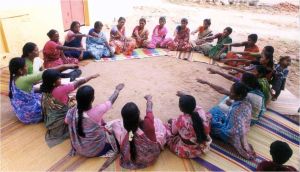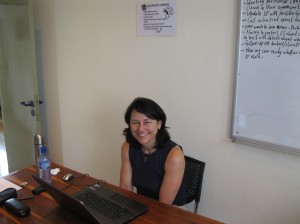Statement of Nobel Laureate Professor Muhammad Yunus on the Occasion of Supreme Court Verdict on May 5, 2011 Regarding His Removal from Grameen Bank. Professor Yunus voiced his concern after revelations surfaced surrounding violence against employee leaders of the Bank. Those interested may also want to read in the Bank’s point-by-point refutation of the allegations brought up in the government’s Review Committee report, as well as by the nation’s government-aligned media.
You have already heard the verdict from the Supreme Court.
Why did I appear before the Court? Why did I want to contest the order of Bangladesh Bank? Why there is so much concern about this issue at home and abroad? There may be some confusion regarding these questions. Please allow me to share my feelings with you to remove this confusion. I went to the Court for a specific reason. Bangladesh Bank sent a letter to Grameen Bank, removing me from my post as Managing Director of Grameen Bank. The letter also mentioned that I held this position for the last eleven years illegally. Bangladesh Bank did this without giving me a chance to explain my position. I felt that this letter was not legally correct, and through this letter, not only was I been wronged, but so was Grameen Bank. Nine elected members of the Board of Directors of Grameen Bank felt the same way. That is why the nine members of the Board and I filed separate writs in the High Court. We wanted these wrongs to be corrected. Therefore, we had to seek justice through all avenues offered in the Bangladeshi judicial system. This is what we have done.
The fate of 40 million poor people connected to this
In the event that the Honorable Court stated in their final decision that the letter from Bangladesh Bank was issued without lawful authority, I could continue my work with Grameen Bank and make the transition to a capable management as smoothly as possible. But, if the Court verdict went against us, the Board may be forced to take steps to implement the content of the Bangladesh Bank letter. This was the only reason for me to take this matter to the Court. I had no option but to seek justice in this matter.
It is indeed a much wider and much more significant issue to save the future of Grameen Bank and also to protect the hopes and dreams of the over 8 million borrowers. These borrowers are also the owners of 96.5% of the Bank’s shares. The Bank is connected with 40 million microcredit borrowers in Bangladesh, and its impact on all these people cannot be neglected. What happens to Grameen Bank influences the future of the millions of Bangladeshis who benefit from microcredit activities, as well as the future of the institution of microcredit itself. It is actually a great concern for me, and many others, that I properly fulfill my responsibility to safeguard their future before and after leaving the post of Managing Director of Grameen Bank.
Some have said that, instead of going to the court, it would have been more honorable for me to resign from my position as suggested by the Finance Minister. I do not think so. In that case, the end result would have been the same, so far as my exit is concerned. But I would have suffered from carrying the guilt of knowingly accepting an unexpected proposal and putting the borrowers and their families’ futures at risk. I could not do that.

Millions of borrowers like the ones seen meeting above could be adversely affected by a government takeover of Grameen Bank.
Some people felt that I intend to cling to the position of Managing Director of Grameen Bank. But, the nation knows that this position is not my life’s goal. I was, and am, conscious of the fact that my future work will not be based on my holding on to this position, but rather, it would be working with the young generation, from other platforms to address the problem of poverty at home and abroad. I want to do that without jeopardizing the interests of Grameen Bank. This is the thought which prompted me to write the letter to the Honorable Finance Minister one year ago. I suggested two options to him for a transition that could take place without creating any waves within the Bank. I did not get any response to these proposals. I was, instead, told to quit. It is, therefore, unfair to me to suggest that I am holding on to the of position of managing director unjustly or to allege that I am not co-operating in the process of transition.
For the last few months, a section of the media devoted itself fiercely to campaign against me, Grameen Bank, and the concept of microcredit. Everyone has his own explanation why this is happening.
An unfriendly atmosphere is not helpful for a smooth change of leadership
The cause of my concerns, as well as those of the nation and the world, lies here. These concerns are more for Grameen Bank and the future of its millions of borrowers, than for me. For this reason, I have been reminding you repeatedly that undertaking the transition process of Grameen Bank’s management in an unfriendly environment will only cause harm to the future of the Bank. I have always wanted to make sure that the transition takes place in a friendly, mutually supportive environment, so that the achievements of Grameen Bank may continue without interruption. There are many issues related to this. The big questions are: whether Grameen Bank can maintain its independent existence, and whether it can be successful in keeping itself away from political influences. What actually happens to financial institutions in our country if political influences start playing a role in these institutions is common knowledge. This experience will not inspire trust in the borrowers. We all know how important the role of trust is in the operation of Grameen Bank.
(more…)








